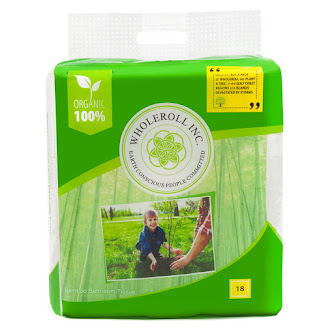Did you know that most of our grocery shopping habits waste lots of cash and lead to environmental damage? Luckily most people have become more frugal to help cut costs to help protect the environmental surroundings. So what can you do to help protect the environment on your next trip to the grocery. Changing some of your shopping habits is really eay if you just make up your mind to do it. Here are some simple ways to save while also protecting the environment.
·
Buy
only what you need
Plan what you need over a few days to avoid
dashing to the grocery every time you need something. This often leads to
picking up things you never had planned to buy. Also, plan your meals for a
week to ensure that you know exactly what you are cooking each day. If you have
to consistently run to the grocery each day to get fresh vegetables, chances
are you are spending more on fuel, polluting the environment and becoming a
victim of impulse buying. However, do not make it a practice over buy. It will
save you money, gas, there will be less pollution and trash.
·
Buy
in bulk
If you are making monthly purchases consider
buying in bulk. When you purchase in
bulk you often get financial discounts as well as you will decrease your carbon
footprint because you will not have to go to the grocery which cut backs on
carbon pollution. When you buy in bulk,
it costs much less per pound than buying in small units. In fact when you
purchase small packages, it often leads to more litter in landfills and the environment.
·
Bring
your own reusable bags
It is very important to invest in your own
reusable bags and completely ditch the plastic. This eliminates or reduces the need
for stores to provide the plastic bags that so often end up in oceans and
landfills and it takes years to break down one plastic bag. Canvas and cloth
bags are inexpensive, very roomy and are easy to carry. Theses bags are also
easily washable and can be reused for later. Many stores are encouraging people
to come with their bags and providing discounts and incentives for those who
do.
·
Reduce,
re-heat, reuse
In most homes, lots of leftover food finds its
way to the garbage bin. Often times the food is can be reheated and used in the
next meal. Broths can also be utilized in the next meal if they are well
preserved. When possible, cook just enough so that it can be consumed
completely at dinner time with little or no leftovers. Leftovers can often be used
with added new ingredients to make a brand new meal for the next day.
·
Grow
herbs in the backyard
If you have space in the backyard, grow some
herbs and vegetables rather than buy them at the grocery. This may be more time
consuming but the advantage of growing your own vegetables and herbs is that
you get to consume organic produce, you will save money on your grocery bill, it is a form of exercise and you will contribute to a greener environment.
Saving
money on grocery and helping to preserve the environment actually go hand in
hand, but it takes a made up mind and commitment to reap the benefits.








